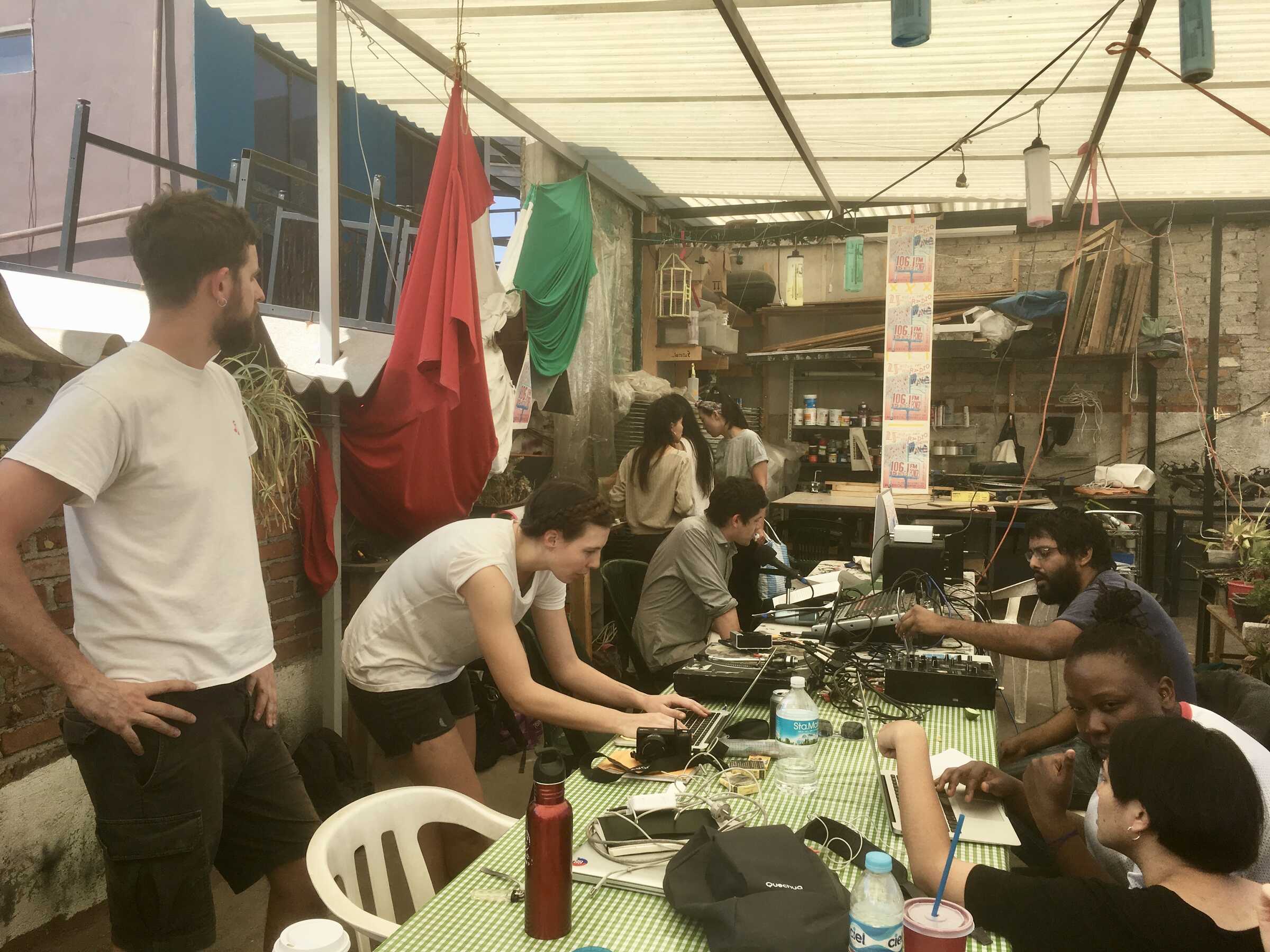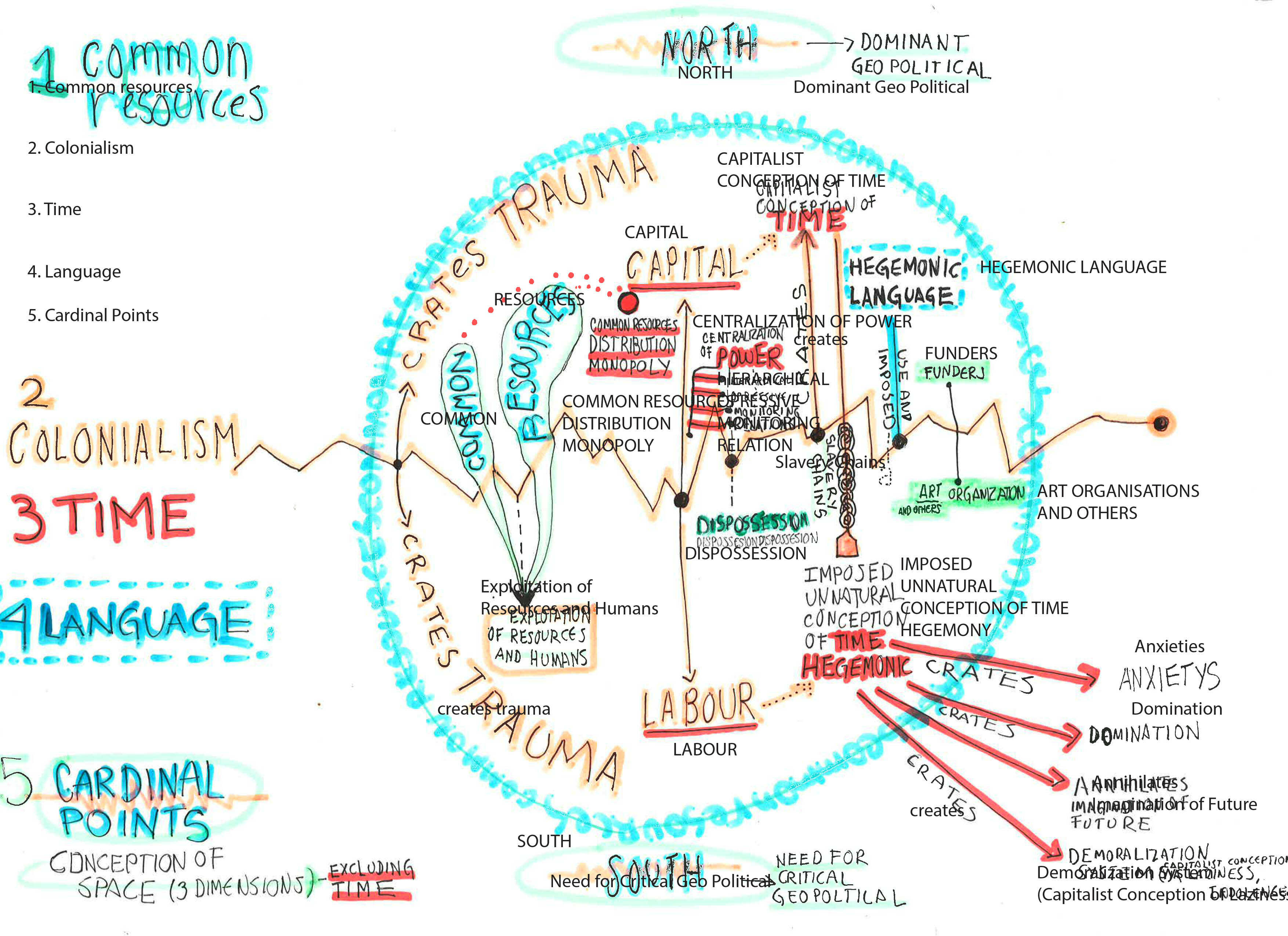2016-2017 Southern Wave ~ a year long course + a research trip to Mexico City.
Lead tutors: Binna Choi and Yolande Zoli Zola van der Heide
Partner: Casco Art institute: Working for the Commons
Guests: Ferdiansyah Thajib (KUNCI), Cooperativa Cráter Invertido a.o.
Participating students: Aldo E. Ramos, Anna Bitkina, Areumnari Ee, Ines Marita Schärer, Luca Carboni, Maya Watanabe, Mónica Lacerda, Nina Støttrup Larsen, Pitchaya Ngamcharoen, Sara Benaglia, Stephan Blumenschein, Tirza Kater, Wayne WJ. Lim, Wilfred Tomescu.
A DAI ROAMING ACADEMY PROJECT
Introduction
With radio as its central publishing tool, Southern Wave connects the notions of “south” and “wave” to collective artistic practice and study. Southern Wave looks into the “global south” and “global north” as “terms for a bundle of economic, military, and cultural relations marked by centrality and marginality and by global structures of domination.”[1] Adopting these saturated concepts as a basis for intellectual analysis and imaginative creation, we question how “south” functions as a term to cite the dispossessed, thereby finding a way to name and call out the authoritarian regime that leads to an overwhelming sense of dependence on the north for intellectual life, especially with respect to the “marginal” efforts of decolonization. Southern Wave then looks into the term south beyond its handle as a geographical locator, pointer to a static relationship with the north, or moral category, but instead as a primary source of intellectual and political dynamics to study how we can effect fertile terrain for the emergence of new relationships and platforms for future visions.
As a horizontal form the “wave” conditions a rhythm for working together as we engage with our respective notions of the south, that is, moving into a collective practice that allows for moments of temporary leadership, cooperation, and challenge. The wave indicates a mode of becoming that differs from being and progressing in linear and straight forms. It is through this practice that different languages are thus made available and aired via the acoustic-somatic medium of radio.
[1] Raewyn Connell, “The South on the South,” Social Transformations: Journal of the Global South vol. 1, no. 2 (August 2013 ): 8.
Method for Each Gathering
The course draws on the resources of Casco’s core staff members; publications associate Yolande van der Heide and director Binna Choi. Topics include: (un)commons, earth, unlearning, Pan-Africanism, cooperation, organization, decolonization, pirate radio, and poetry. Methods include: seminars, field trips, guest tutor presentations and assignments, technical assistance, collective processes, the development of individual projects, and the presentation of a live radio broadcast. The program is structured into two main threads:
1) Live Radio Broadcasts based around: a) meeting with the pan-African publication of writing, art, and politics Chimurenga, in line with their Pan-African Space Station “landing”; b) Mexico trip with artist collective Cooperativa Cráter Invertido; and c) concluding remarks and final live-broadcast project.
2) Guest tutors are invited monthly: to workshop their respective practices and address concrete assignments towards the final live-broadcast sessions, always responding to the question: What does “South” mean to you and how do you organize yourselves in your group or collective? Guests so far include: Ferdiansyah Thajib / KUNCI Culture Studies Centre in Yogyakarta; Chimurenga, Cape Town; and Cooperativa Cráter Invertido, Mexico City.
Requirements
No prior technical knowledge of radio is required. We will build up our knowledge together along the way with the help of experienced radio makers and technicians as consultants.
FROM MONTH TO MONTH ~ ALL SEMINARS: from Month to Month


